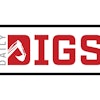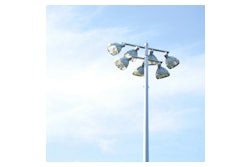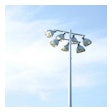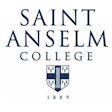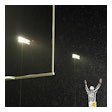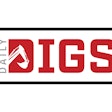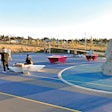All Rights Reserved
Copyright 2018 The Arizona Daily Star Jul 8, 2018
Arizona Daily Star (Tucson)
When Brent Dennis came on board as director of Tucson Parks and Recreation the day after April Fools' Day, he inherited 129 well-worn, overcrowded, once-green city parks.
But Dennis didn't feel tricked, having done his own "secret shopper" tour of the city's vast parks system months before. Instead he saw opportunity.
"I could see the bones were there," Dennis said. "They were sorely lacking some TLC."
That TLC may come in the form of a $225 million bond expected to go before voters in November.
As plans are being hammered out, an eight-page list of projects has emerged, with nearly $128.2 million set aside for aquatic facilities, and park improvements to recreational centers as well as sports fields and lighting.
Examples of parks that would see significant improvements if the bond passes in November:
$13.4 million for Morris K. Udall Park. The funds would help to expand the existing east-side park by adding a new lighted soccer complex, lighting for the baseball complex, fencing for softball fields, resurfacing the tennis courts, a splash pad and additional parking.
$6.3 million for Fort Lowell Park. The midtown park would see improvements to playgrounds, ramadas, restrooms and the conversion of the tennis courts to pickleball courts. The city would fix the pool and install a splash pad, but roughly $3.15 million would go toward historic preservation of the former commissary.
$10.7 million for Joaquin Murrieta Park. The city would revamp the west-side park with a full-sized baseball field, two fenced-in slow-pitch softball fields, additional fields for Little League baseball, a new pool and a splash pad as well as a new dog park.$4.6 million for John F. Kennedy Park on the southwest side. The city would build new sports fields and picnic areas, make improvements to the playgrounds, restrooms, walking path and the pool.
Another large section of the bond is linear parks, with the city setting aside $24.6 million to build elongated parks designed for cyclists and pedestrians that connect parts of town.
For example, the proposed 9-mile corridor that constitutes the Alamo Wash Greenway would connect Kolb Road to Rillito River Park. The Arroyo Chico Greenway, penciled in to cost $4.4 million, would connect Reid Park to downtown Tucson.
Plans also include $67.1 million for what the city calls "connectivity" — which includes items like new bike boulevards, pedestrian safety improvements and building protected bike lanes.
Another $5.2 million has been set aside for improvements to the Randolph Park and El Rio golf courses.
City officials caution that while the plans are 95 percent done, they still could change after input from the Tucson City Council next week, as well as pressure from the public.
Councilman Steve Kozachik voted against putting the parks plan on the ballot, telling his colleagues they've pushed the city staff too hard and too fast to craft such a proposal in a matter of weeks.
He felt it would be better to put off the initiative until next year, giving the staff, the council and, most importantly, the community time to weigh in on the proposal.
City officials acknowledge the proposal being pieced together comes from old, shelved plans that at one point solicited public comments to fix the city's aging parks, but are now being modified.
For example, few, if any, of the previous plans included splash pads. An alternative to pools, officials are now planning on putting them throughout the city if the bond passes as they are significantly cheaper to maintain and do not require costly lifeguards.
Councilman Paul Cunningham has been one of the most vocal advocates for the bond, saying Tucson parks have been neglected for far too long.
"We have soccer and baseball fields that are shared by as many as 12 teams and are in use every day. We have playgrounds that are 20 years old," he said, noting he spends his weekends as a Little League coach.
The self-described avid jogger rejects the idea that park improvements mostly benefit children.
"Contrary to popular belief, everyone uses the parks, whether it is kids doing youth sports, doing your laps at the pools, enjoying the zoo, hanging out at one of our senior centers, playing tennis or simply walking or jogging. Our parks enjoy a lot of use, and they are due for a makeover," Cunningham said.
The parks bond, if approved by voters in November, will not raise the city's property tax rate.
As it stands, the city's debt-service payments are scheduled to decline as old bonds are paid off, and the new bond would merely extend the current rate.
While the last-minute decision by the Pima County Board of Supervisors to put a $430 million roads bond on the ballot surprised city officials, Cunningham said it is time to let the voters decide.
"It's time to ask the voters what they want," he said.
City-run parks have long taken a back seat in fights over city budget allocations since the recession, with the last voter-backed bond and a separate sales tax initiative focusing on roads and public safety.
The city has closed some parks over the years — including city pools — rather than spend the funds to maintain them.
Read More of Today's AB Headlines
Subscribe to Our Daily E-Newsletter
Terms and Conditions Privacy Policy












